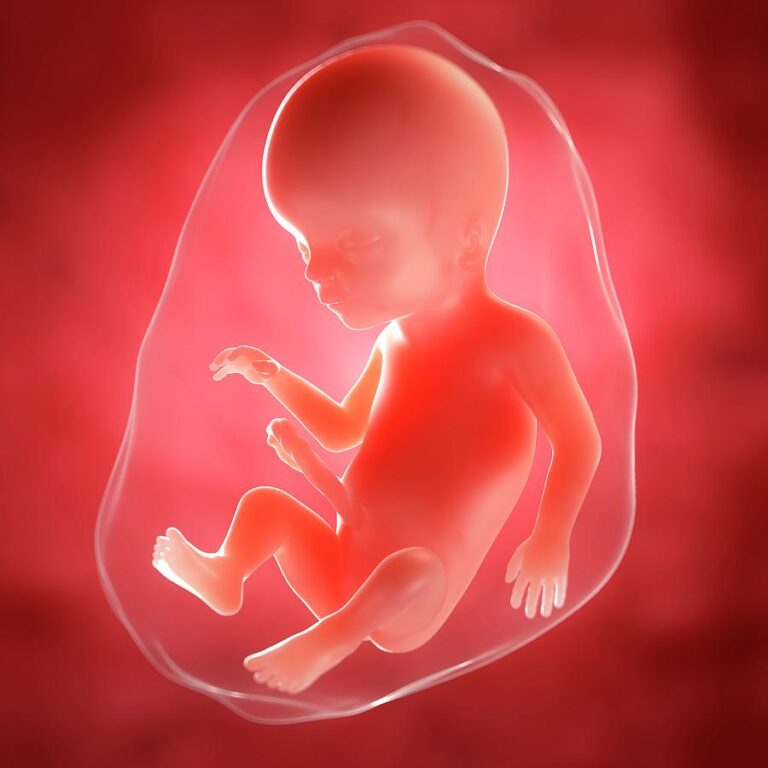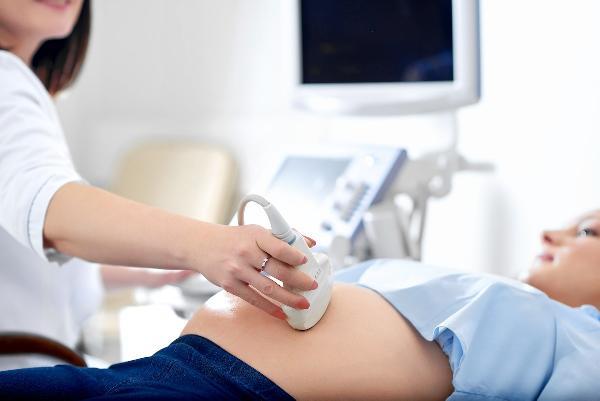18 Weeks Pregnant: Pregnancy Symptoms & Baby Development
Read time: 4 minutes
18 weeks pregnant is how many months?
Month 4 (Trimester 2)
Baby development at 18 week
Your baby may respond to noises from the outside world.
Anomaly scan
This is a routine scan to ensure all is well.
Diet & nutrition
Healthy snacking and Vitamin A are on the menu.
Baby development at 18 weeks

What does my baby look like? And, what size is my baby?
At 18 weeks your baby is about 14.2cm long – the size of a sweet red pepper – and weighs around 190g1.
Around weeks 18-20, you may also start to feel your baby’s first movements as they switch between sleep and active wakefulness. These first movements are usually little kicks and rolls that feel light and fluttery2. If it’s your first pregnancy you may not notice them or even mistake them for mild indigestion as many mums-to-be report feeling more movement after a meal or late at night2.
Around this time, your baby may also start responding to noises from the outside world, making this an ideal time to start talking to your bump3. Your baby’s reflexes are also continuing to develop – swallowing, sucking and hearing4.
Inside your baby’s lungs, air sacs called alveoli are starting to develop and it’s common for your baby to experience hiccups at this stage3, although it’s unlikely you’ll feel them.
Pregnancy at 18 weeks (second trimester)
What’s happening in my body?
Your uterus will have moved into position and is around the size of a cantaloupe melon. You should be able to feel it about one and a half inches below your belly button3. It’s also possible that you’ll notice the appearance of the Linea Nigra (Latin for ‘black line’). It’s actually a brownish streak, about a centimetre wide and perfectly natural. It’s caused by an increase in a hormone made by the placenta5.
Many women report feeling a little clumsier as they adapt to their growing bellies. You may notice your breasts start increasing in size, especially if this is your first pregnancy4. Your blood pressure is likely to be a little lower, so don’t leap up from a sitting position as it could make you dizzy4. To help keep your blood sugar levels stable and maintain steady energy levels eat little and often.
Pregnancy symptoms at 18 weeks

Stretch marks
As your belly grows, you may see the appearance of stretch marks on your stomach or breasts6. They usually become much less noticeable after birth. Don’t waste money on ‘miracle creams’ – simple moisturiser is enough.
Swollen or bleeding gums
Blame your hormones. Again. Thankfully, pregnant women receive free dental care which continues for the first year of your baby’s life7. Ask your midwife for a maternity exemption certificate.
Feeling hot
With your body pumping more blood, and rampaging hormones, you can feel extremely hot. And not always in the best sense of the word. Wear loose, breathable fabrics and stay hydrated with chilled water8.
Frequent urination
Frequent trips to the bathroom are one of the most common symptoms of early pregnancy, as your growing uterus begins to put pressure on your bladder.
Headaches
Those hormones are the likely culprits. Paracetamol is usually safe to take during pregnancy and while breastfeeding, but always at the lowest effective dose, and for the shortest possible time.
Breast tenderness
Your breasts may become larger and feel sore. You may also find your nipples stick out more than usual and darken in colour as your body begins to prepare for breastfeeding.

Your anomaly scan
This sounds a little scary, but it’s actually a standard ultrasound scan to ensure all is well with your baby. You should be offered an anomaly scan between weeks 18-20. You’re not obliged to have the scan, but we recommend it.
The scan looks at your baby in detail to see if there’s anything unusual about their appearance and development. It’s possible to identify a range of conditions from a scan, but not all. Most scans reveal healthy babies, but if it does pick up something you’re not expecting then you may be offered a series of further tests. Again, it’s your choice whether to have them.
The scan won’t hurt you or your baby but it could feel a bit uncomfortable as the sonographer may have to apply a little pressure on your stomach for the clearest view.
Is it a boy or a girl?
It may be possible for the sonographer to tell the sex of your baby with this scan. However, not everyone wants to know and it’s not always hospital policy to reveal the sex of a baby. Whether you’d like to know or not, make it clear before having your scan.
Focus on Vitamin A
Vitamin A contributes to the development of two of the most intricate and extraordinary parts of your baby’s body – their eyes. It’s also important for their immunity and skin cell production and supports the development of alveoli air sacs in your baby’s lungs. These help transfer oxygen into the blood, and remove carbon dioxide10.
There are two forms of vitamin A:
- Retinol – found in high levels in some meat and fish products, and in safe levels in dairy foods and eggs11.
- Beta-carotene – a substance in fruit and vegetables that the body can convert into vitamin A

An important balancing act
Too much vitamin A can be harmful, as can too little – but a well-balanced diet should provide you with the right amount of vitamin A. Learn which sources to include in your pregnancy diet, and which foods and supplements to avoid.
THE
SCIENCE
BEHIND
VITAMIN A
Powered by Nutricia
Vitamin A is a fat-soluble vitamin, meaning it is stored in the liver and fat cells of the body. A healthy supply of vitamin A during pregnancy builds up your baby’s natural stores in preparation for the first few months of life12. A low level of vitamin A can affect your baby’s immune function after birth, leaving them more susceptible to infection and illness
